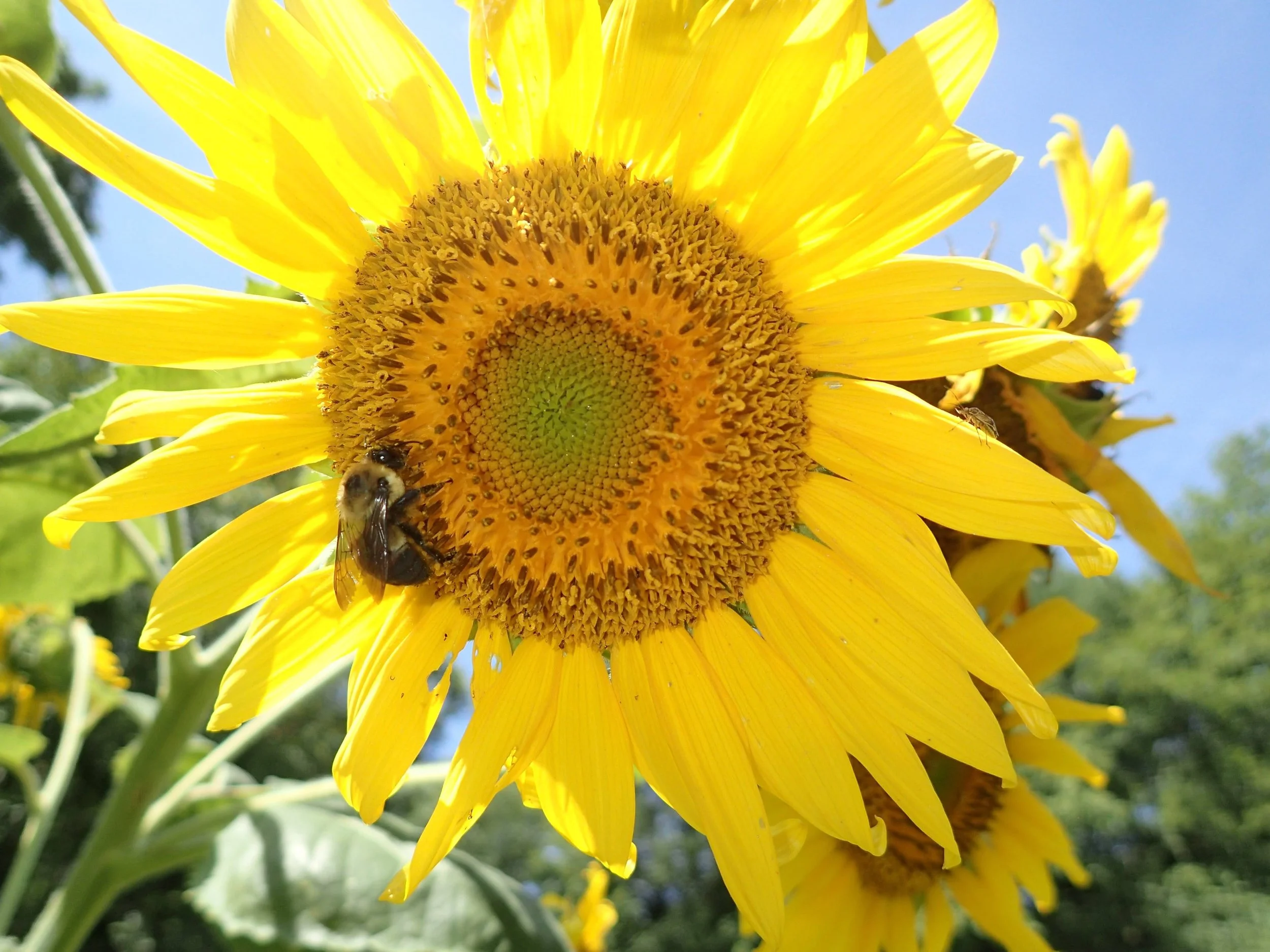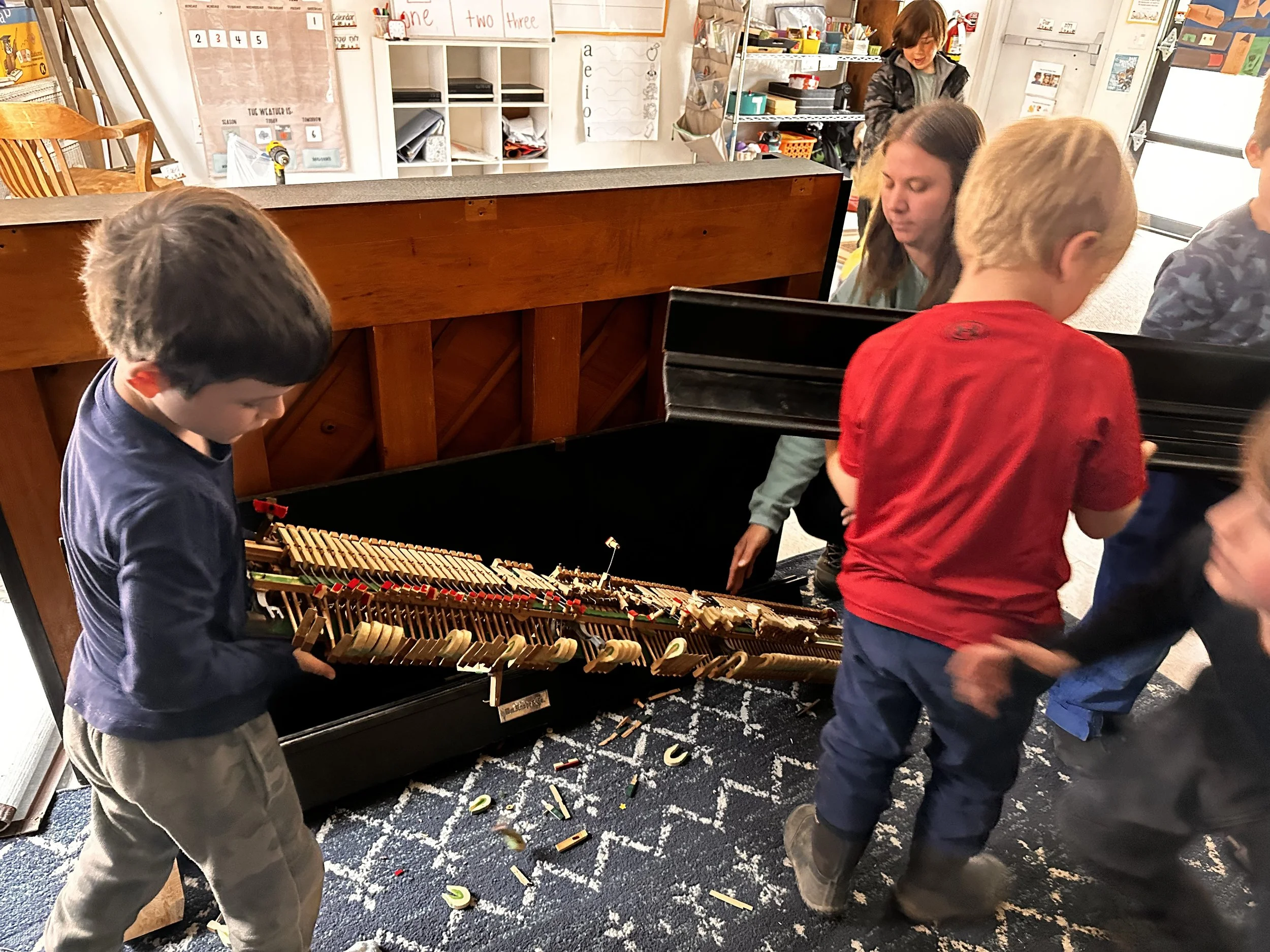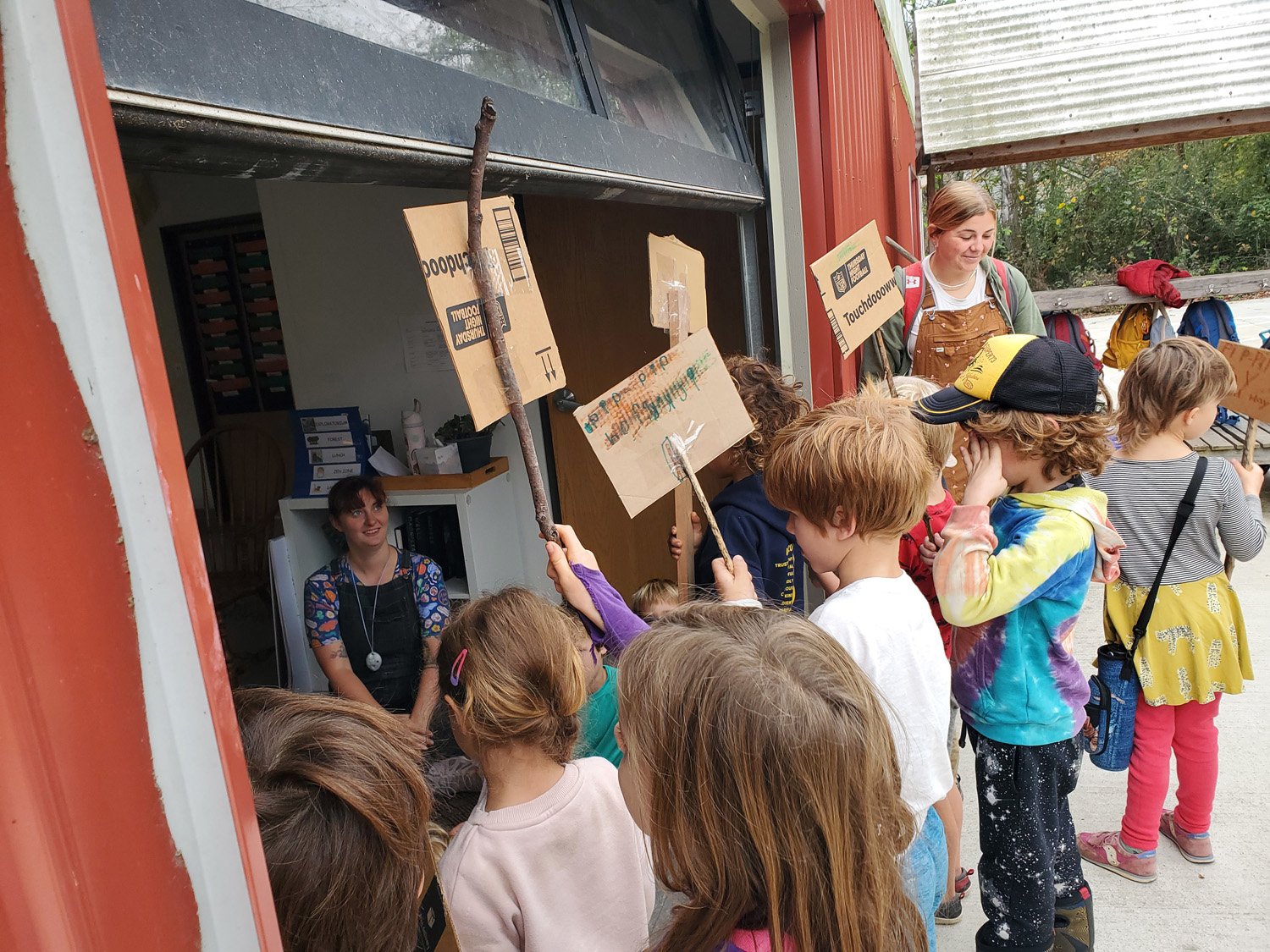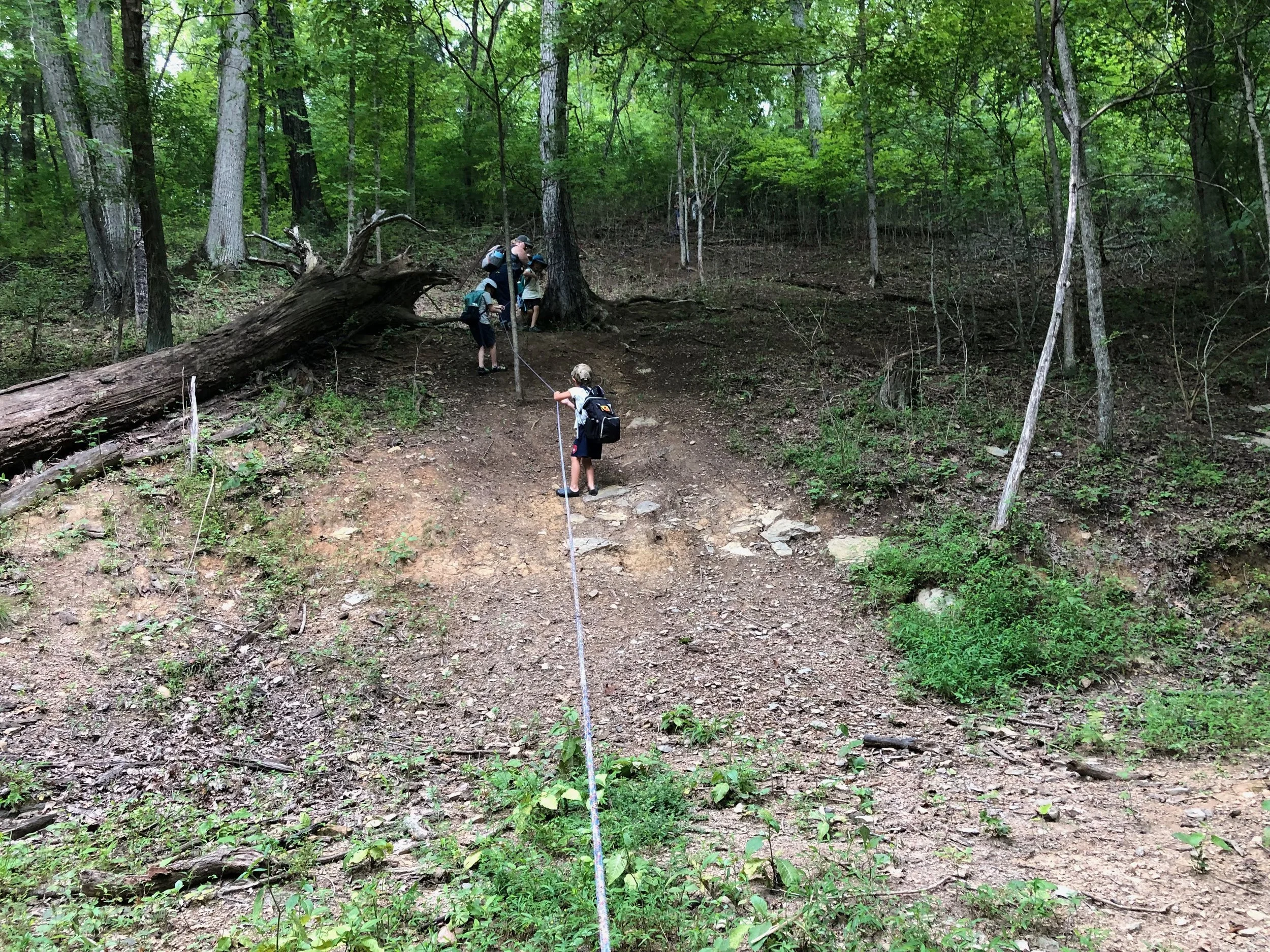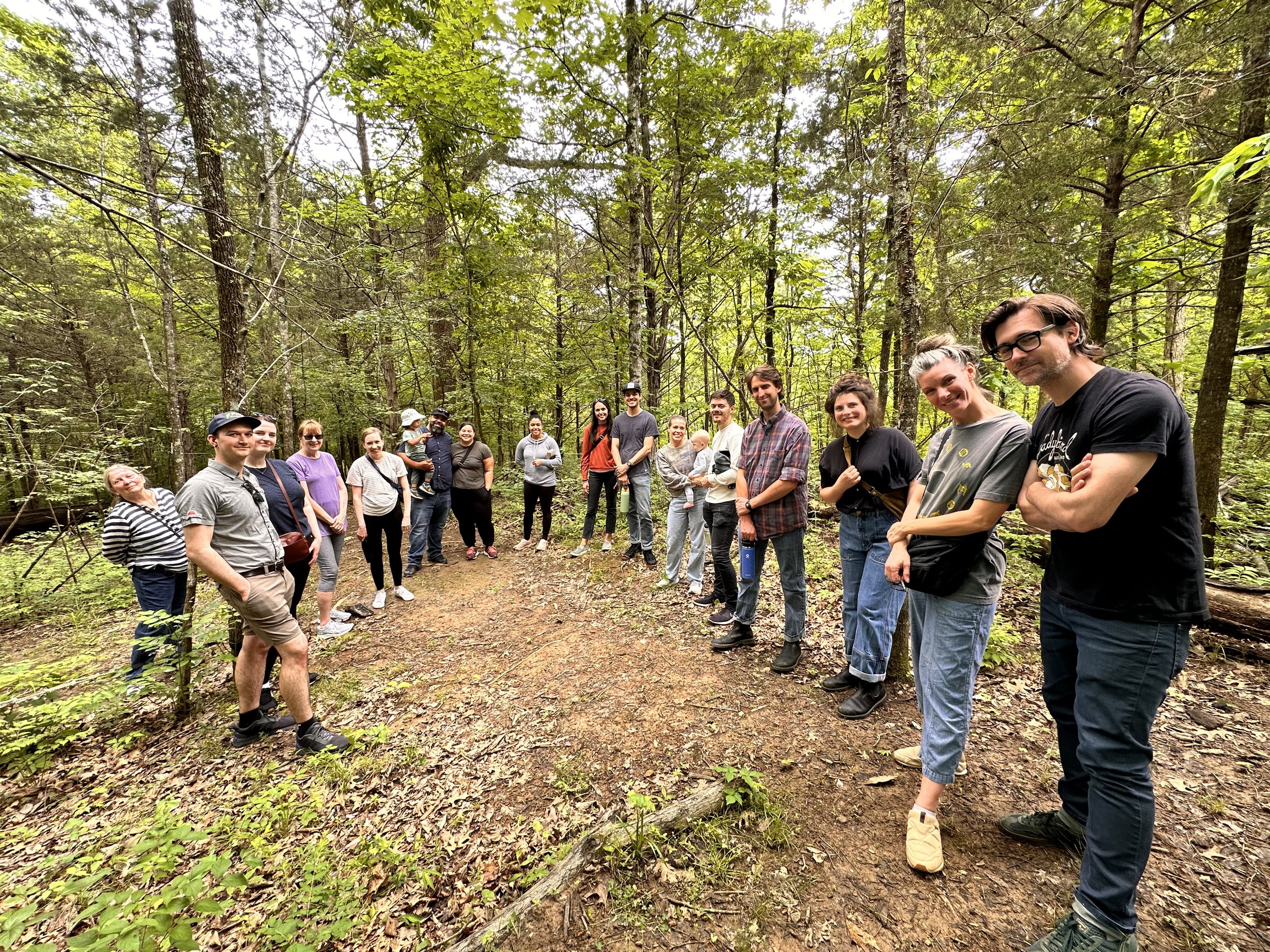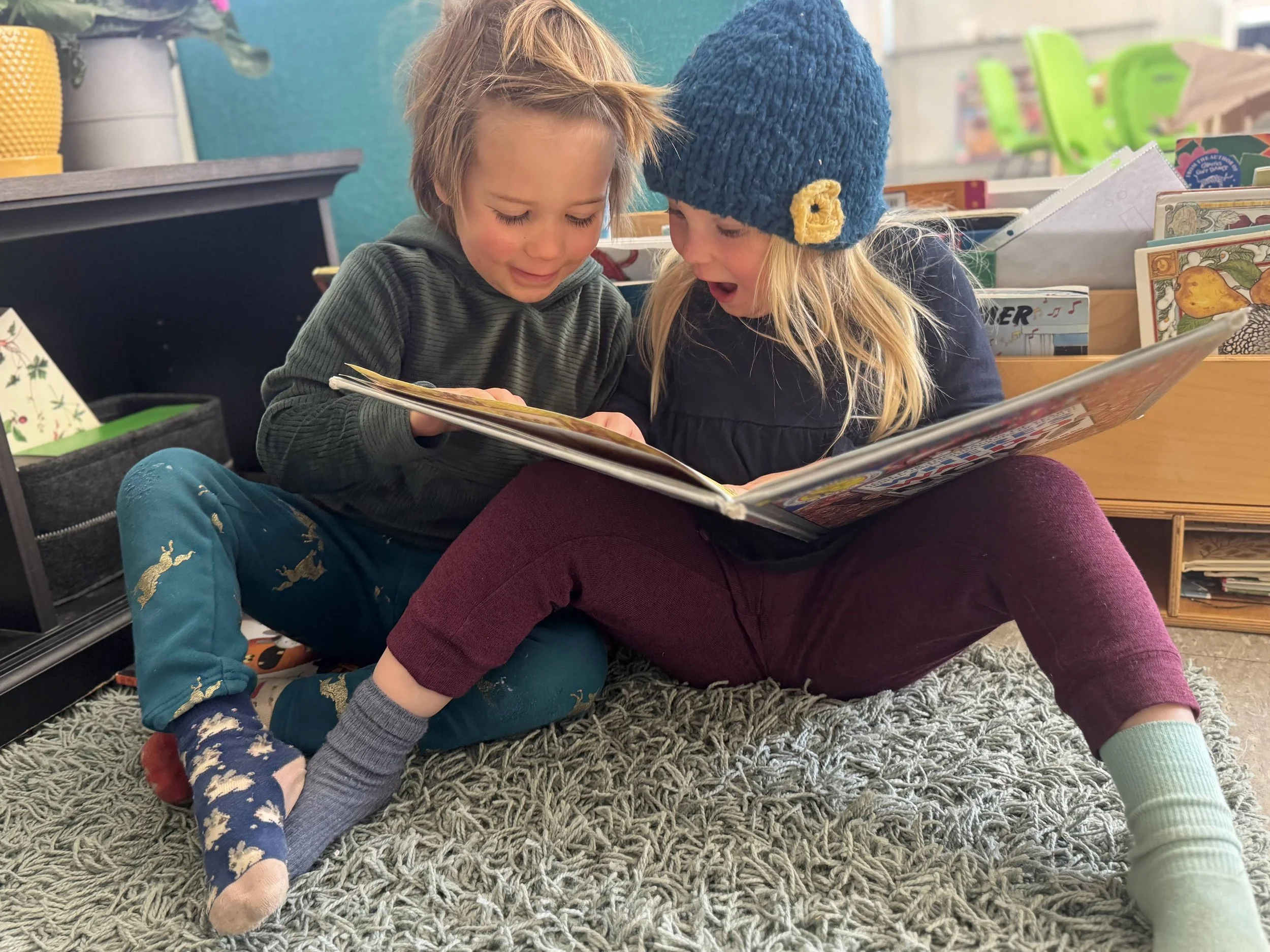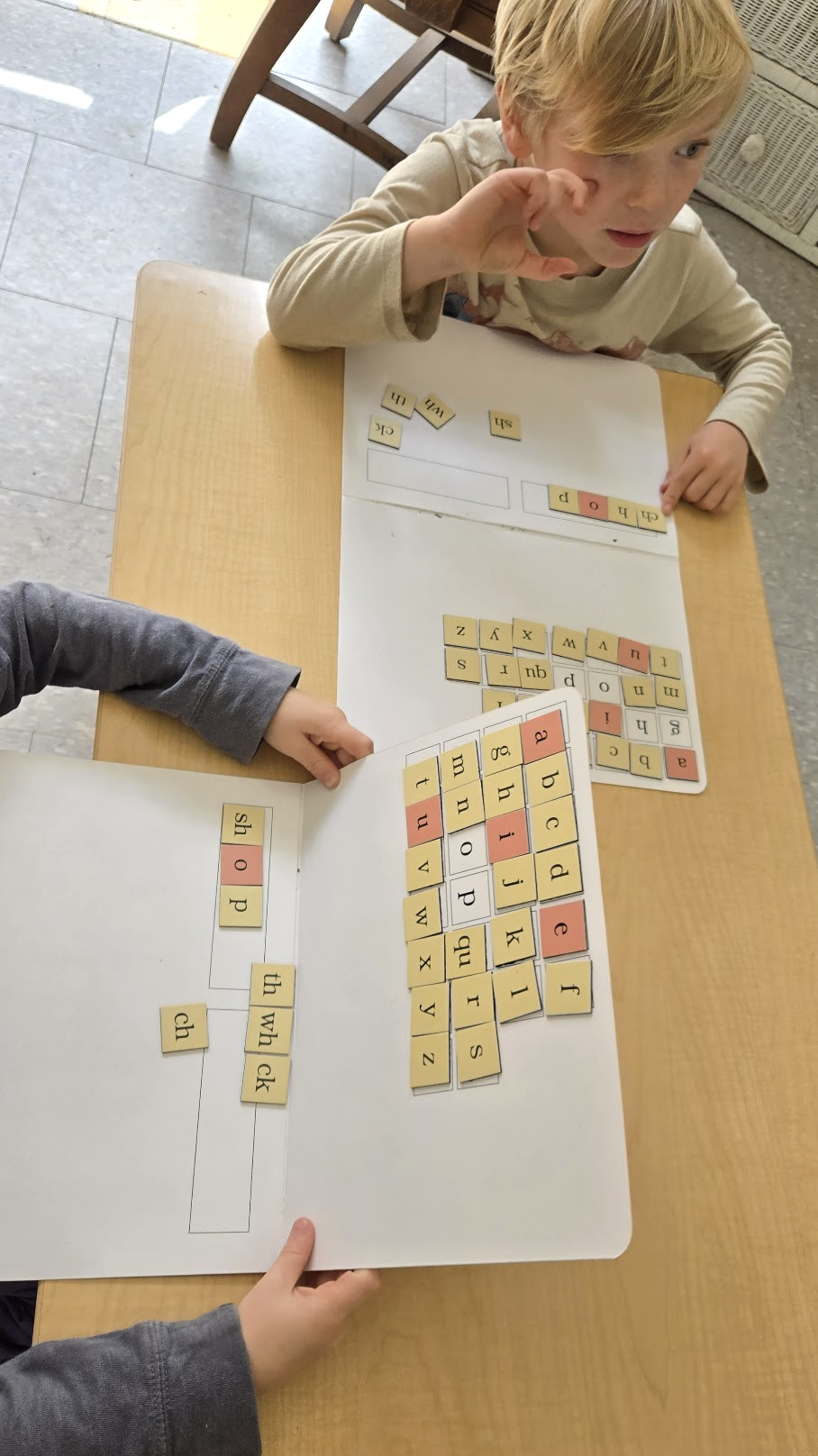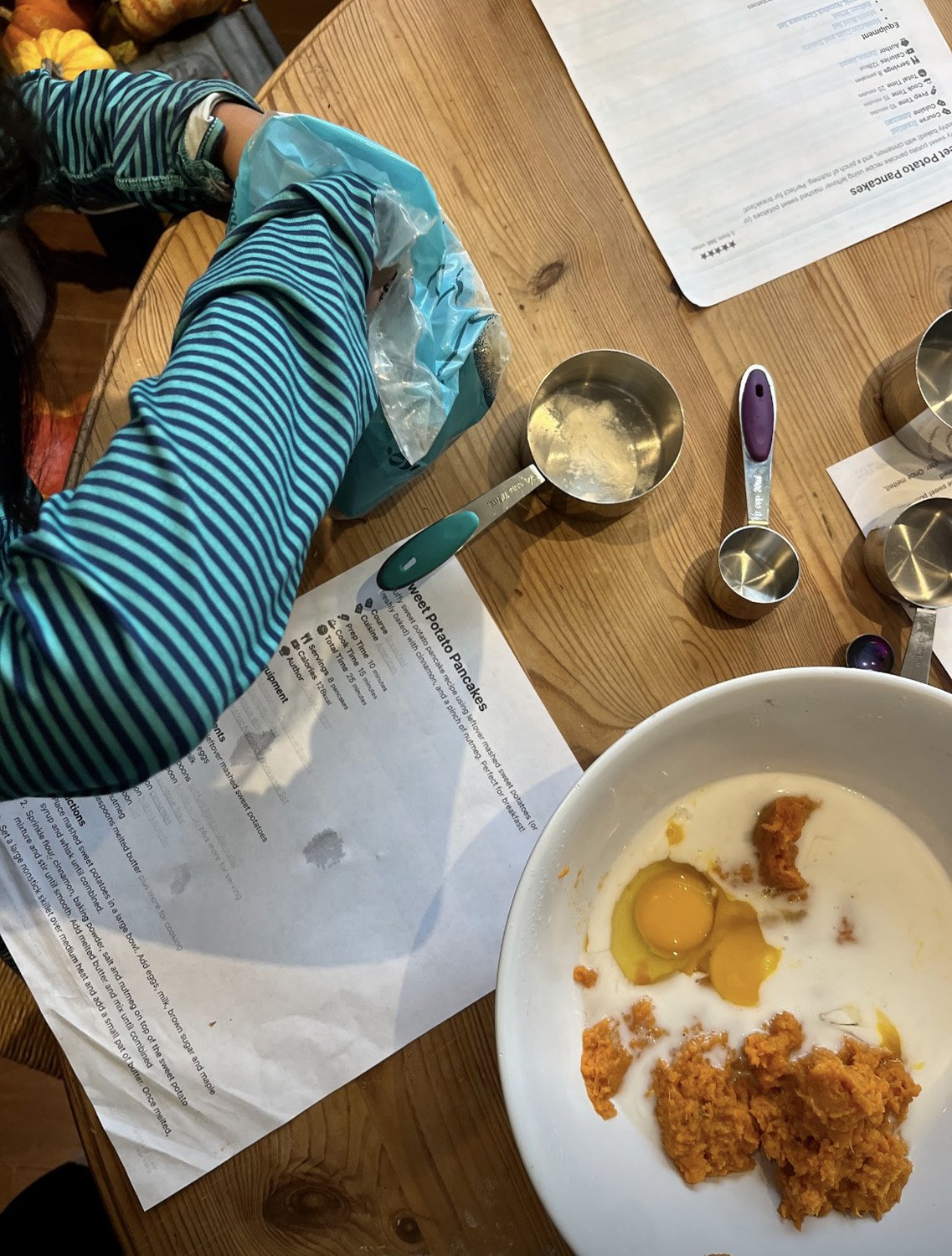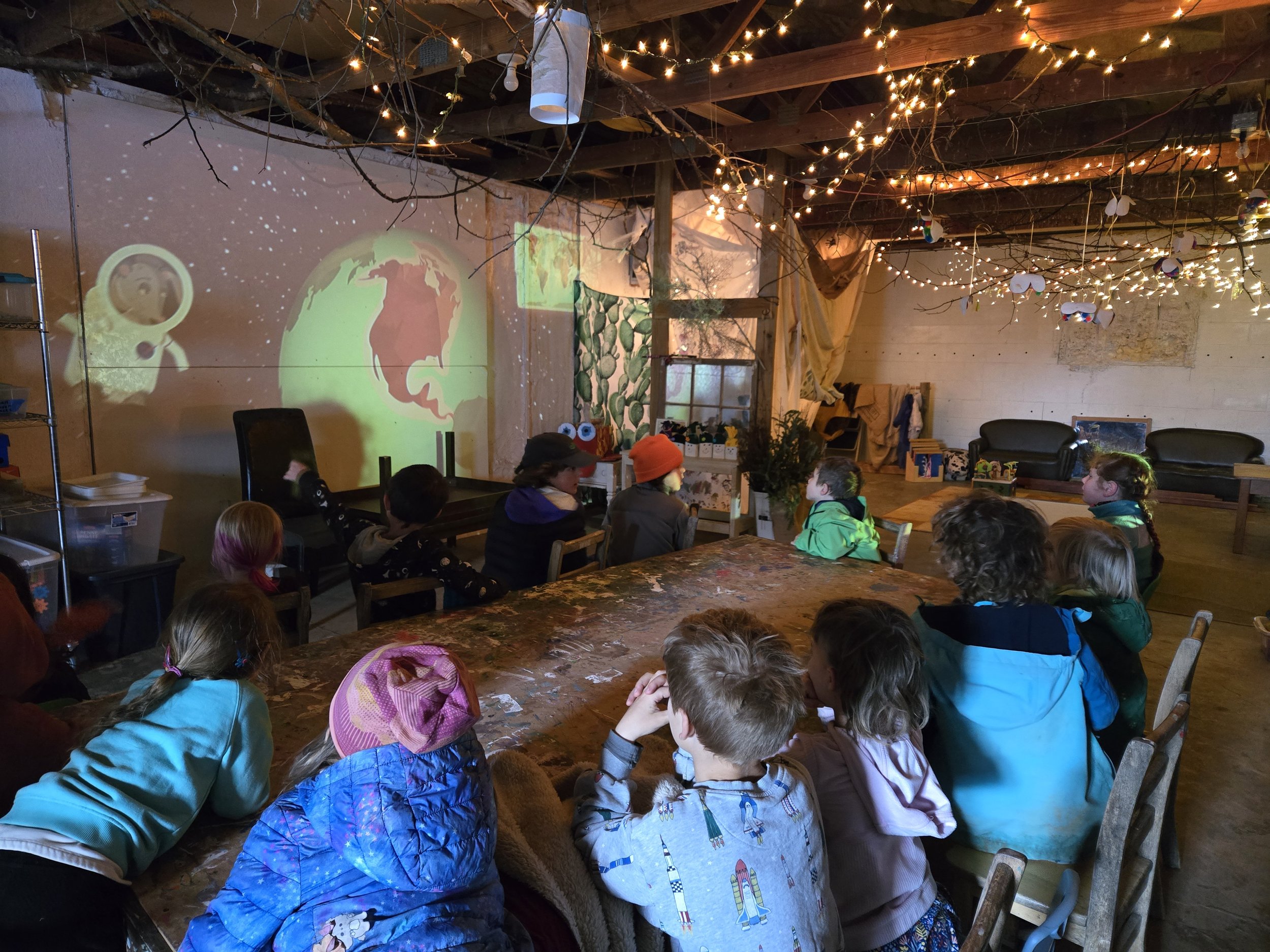
From values to action
Join our mission to bring education back to earth.
“A New Leaf” represents the beauty, vitality, and limitless potential of every child.
We believe that each child is uniquely gifted and deserves a rich environment to explore, grow, and learn. We believe children From birth are social beings, with the right and need to engage meaningfully in community alongside adults and peers
Children as capable people, as citizens with rights and responsibilities.
Families as community partners and collaborators.
Teachers as co-researchers and advocates for many modes of learning.
Education grounded in nature as teacher.
Emergence of the curriculum that give voice to intellectual activities where academics are tools.
Learning through projects that explore knowledge through many points of view and listening to many voices.
Multiple tools to explore 100 languages of expression and knowing.
Imagination, play, and stories.
Differentiating truth from story.
Healthy lifestyles, environmental protection, sustainability, and conservation of life forms.
Respect for life as we are part of the world’s ecosystems and we depend on this interconnectedness for our wellbeing.
Continued learning, growth, and development.
This we value
This we practice
Environment as the Third Teacher
In our approach, the environment is a fundamental teacher alongside parents and educators.
Nature’s presence in field, creek, forest, farm, and garden serves as a powerful guide, fostering scientific inquiry and ecological understanding, as well as concepts of balance and belonging.
In addition to our outdoor laboratory, our settings include indoor spaces like the Light Lab, the writing center, the math library, the art studio, and so on.
The 100 Languages of Children
Inspired by Loris Malaguzzi’s core ideas, we believe in offering children diverse ways to express themselves. This includes creative activities like building with clay to develop the alphabet of clay as they apply different techniques, or solving problems with the language of ropes, building with the language of geometric solids. This allows us to explore and communicate through various mediums.
The 100 languages represent 100 ways of knowing, promoting novelty, and the belief that ideas, truth, and events have many layers.
Constructivism
Children have more agency and possibilities when they have more power to construct knowledge by pursuing their own interests. Knowledge becomes personal, built by the learner, in a manner that is actively engaging with the environment and other participants. Constructivism is a way of learning that values the voices of the children and the transformative power of their stories in community with each other. This approach fosters empathy because it elevates collaboration, and strengthens relationships.
Projects fuel the emergent curriculum
Projects begin with children’s interests. They often emerge from observations, discussions, and actions or explorations. They take momentum with a few students and can often expend to the whole group. Small group projects may last a few days or weeks, large projects often span months or the whole school year. Projects are negotiated with student and teacher contributions and become very rich when layers of standards are added to incorporate math, reading, writing, science, social-emotional learning, studies of diverse cultures, arts, and other disciplines. The engagement is meaningful, real-world, hands-on as well as bookish, and open ended.
Being co-researchers together
Students and educators all participate in the learning journey as co-researchers within the project approach. Evolving together within beautiful outdoor spaces allow us to emphasize a STEAM education where sciences, old technology, new engineering, arts, agriculture, and mathematics can draw deeply from the ecology of gardens, forest, farm, and aquatic ecosystems.
Dr. Montessori studied children to develop her methods over a century ago. Here we aim to equip our educators to study our children and work with today’s families to approach development with the advancement of neuroscience. In the context of current technology and social influences it is important to research best practices for our complex psychological situations.
Balancing Inquiry-Based and Explicit Learning
We combine hands-on, inquiry-based exploration with structured learning tools. While storytelling may come naturally, skills like writing and mathematical abstraction require deliberate practice and teaching.
We use explicit curriculum such as theWilson Literacy Program, Dimensions Math, various educational games, and some Handwriting Without Tears and Montessori materials.
The integration of practiced skills into projects aims to equip our students to not only meet but often exceed state education standards.
Multi-Age Grouping and Differentiation
Since the start in 2005 our preschool students have been in multi age groups of 2.5 to 5 years old. It continues to be wonderful to see how this promotes acceptance of differences, broader friendships, and a deeper understanding and respect of human development for our students.
Our toddlers are close in age which allows us to control more variables to introduce them to school.
Our older students are grouped by grades in a ratio of one teacher to eight students. Small group work allows us to differentiate explicit instruction to meet all individual learners where they are on the various domains of development.
Our explorations take us to many areas of our campuses and provide many opportunities for groups to share activities and collaborate on projects. All students get to know each other!
Documenting Engagement and Joy
We document the journey in various ways to make the learning visible. We create group photo albums, use floorbooks, transcribe children’s statements, assemble physical and digital portfolios for each student, children and teachers make poster and oral presentations, videos, and books of our acquired knowledge and stories.
Exploration, play, and reflexion are powerful tools to a joyful engaged learning experience. Children build strong relationships and delight in each other's successes, enhancing the overall community spirit.

A New Leaf
past & Future
A New Leaf opened its doors in May 2005 with the first season of summer camps, and in the fall we welcomed our first preschool students. It has been an amazing journey alongside many fantastic Nashville families. Some of the children are now grown and have returned to work with us, what joy!




